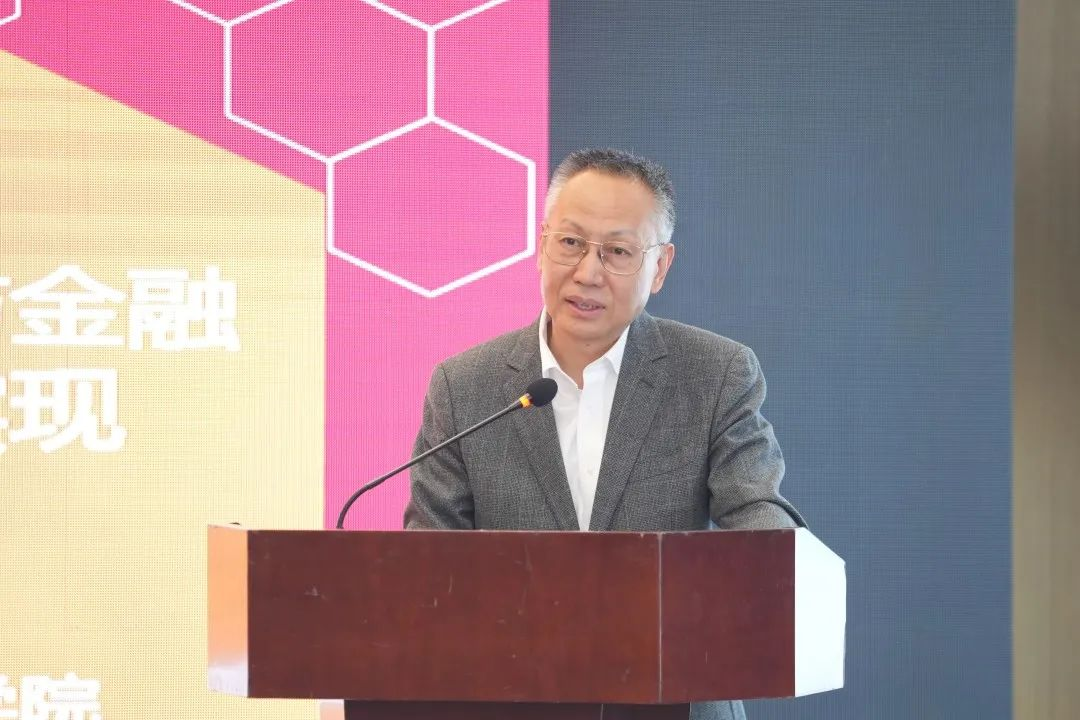Conference on the Digitalization of Wealth Management in the Era of the Digital Economy and the Launch of the Report on Evaluation of China’s Wealth Management Capacity 2022
2023-04-17 IMIOn March 24, the Conference on the Digitalization of Wealth Management in the Era of Digital Economy and the Launch of the Report on Evaluation of China’s Wealth Management Capacity 2022 was held in Beijing. This summit was organized by China Cooperation Forum on Digital Finance and the School of Finance, Renmin University of China (RUC), and co-organized by the International Monetary Institute (IMI) of RUC, the Wealth Management Research Center of RUC, and the Golden Bull Financial Research Center of China Securities Journal. The participants had in-depth exchanges on the digitalization of wealth management, the structural reform of the financial industry, and other heated issues in the industry. Qian Zongxin, Associate Dean of the School of Finance of RUC, presided over the summit.

Wu Xiaoqiu, former Vice President of RUC and Dean of the Academy of China Capital Market, emphasized the need to pay attention to the downfall of Silicon Valley Bank and Credit Suisse and noted that despite the different economic and financial structures of China and the U.S., the bailout strategies of the latter are still worth thinking about. UBS has decided to acquire Credit Suisse, which is an unprecedented decision that has broken and bent the rules. The crisis is far from over and the impact of the collapse of Silicon Valley Bank and Credit Suisse will still be felt, but this will not likely trigger another financial crisis like the one in 2008. When analyzing the impact of international issues on China, it is important to set a rational framework for academic analysis. China needs to learn lessons from these issues and attach great importance to financial risks. The reform of China's financial regulators needs to focus on how to balance innovation and regulation while holding the bottom line of no systemic financial risk. The purpose of the reform is to integrate, coordinate and control financial risks, and to prevent systemic financial risks. Here are two priorities for China’s financial industry: first, to understand the important role of finance in China’s economic and social development – modern finance has largely contributed to China’s scientific and technological progress and economic growth; second, to handle the relation between innovation and regulation, financial regulation should keep pace with financial innovation.

Zhang Jianhua, Secretary General of China Cooperation Forum on Digital Finance and former Governor of Huaxia Bank, pointed out that the financial structure is changing with the development of digital technology. Some platform companies have strong technical strength and data integration capabilities. Their role as third-party institutions has then been highlighted. In the era of the digital economy, how to realize the digitalization of wealth management and make full use of financial data elements is an urgent issue to be solved. The digitalization of wealth management is the general trend. Problems in the traditional wealth management industry such as limited product types, insufficient institutional investment and inadequate management capacity and other problems including low financial literacy in residents can be solved with digital solutions. Digital technology can promote the business transformation of wealth management. Diverse data is needed by many businesses of financial institutions, and banks can make efforts in the datafication of business, scenario-base data, and intellectualized scenarios. The digitalization and intellectualization of wealth management cannot be done without the strong support of data elements and the underlying technology of big data analysis. Data elements are not consumed but gradually accumulated in production and consumption in accordance with increasing marginal utility. Circulation is a sufficient and necessary condition for data to become a factor of production, without circulation, there is no market for data to realize its value. In terms of data collection, only the minimum necessary personal information can be collected and processed with authorization. However, the minimum necessary standard is hard to define in the actual data collection process. In addition, it is also important to obtain a second consent from data subjects to prevent risks.

The meeting saw the release of the Evaluation Report on China’s Wealth Management Capacity 2022. Song Ke, Deputy Director of IMI gave an overview of the report at the meeting and stated four points: first, banks are still the mainstay of the wealth management industry and the investment in fintech continues to increase; second, securities firms continue to expand their market share and the wealth management has been preliminarily digitalized; third, mutual fund companies have huge room for development and the information environment needs to be improved; fourth, third-party institutions develop rapidly thanks to the development of the Internet, which lays the technological foundation for digital transformation.
The industry forum was chaired by Xu Jianjun, director of Golden Bull Financial Research Center of China Securities Journal. Song Jianbin, President of Bank of Hangzhou, Zhang Min, Vice President of Industrial Bank, Wang Tun, Vice President of ICBC Wealth Management, Zhang Xinfan, Member of the Executive Committee and Chairman of the Brokerage Business Management Committee of CITIC Securities, Li Yimei, General Manager of Huaxia Fund, Wang Jun, Chairman of Ant Fund and other guests had in-depth exchanges on digital empowerment, the use of technology in wealth management and other heated issues.
